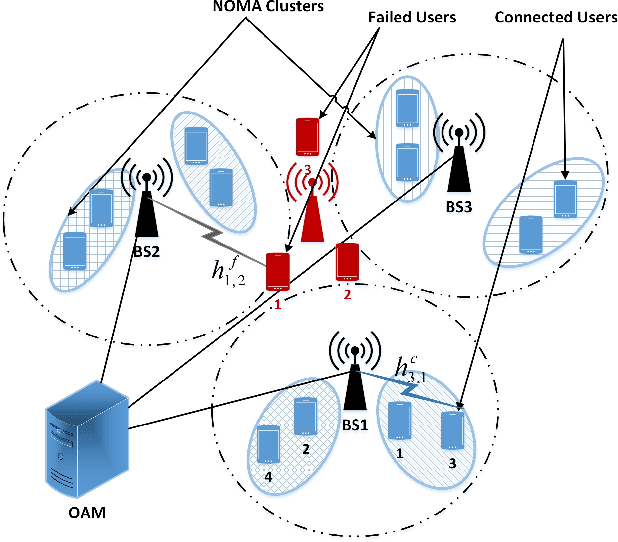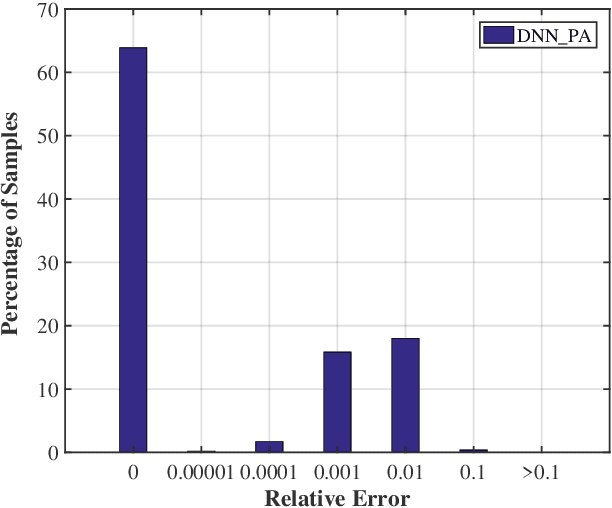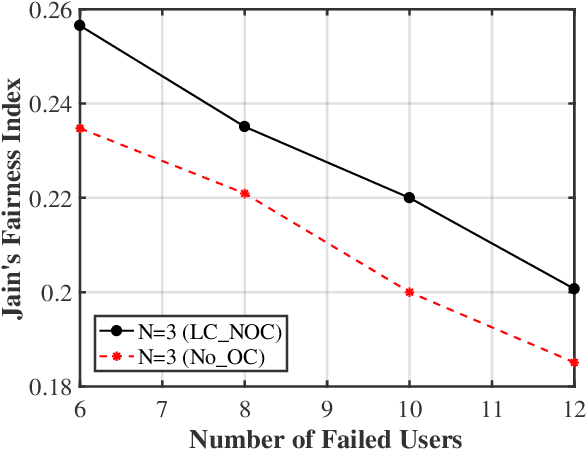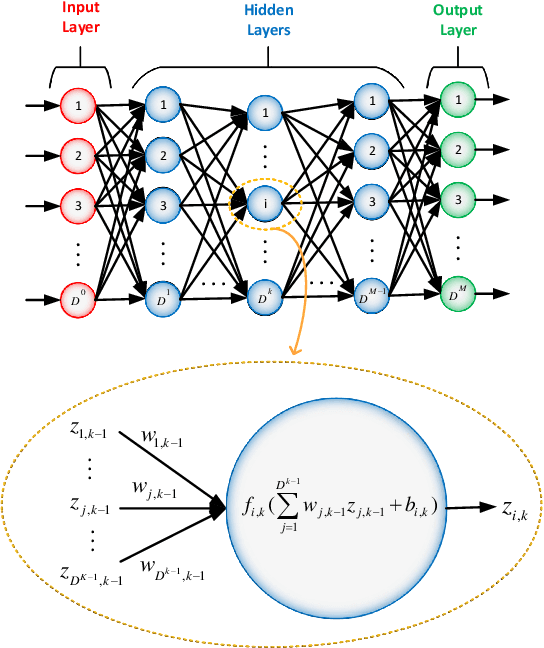Elaheh Vaezpour
Multi-Objective Optimization in STAR-RIS-Aided SWIPT with RSMA via Meta-Learning
Jan 15, 2024



Abstract:Simultaneously transmitting and reflecting reconfigurable intelligent surface (STAR-RIS) is a cutting-edge concept for the sixth-generation (6G) wireless networks. In this letter, we propose a novel system that incorporates STAR-RIS with simultaneous wireless information and power transfer (SWIPT) using rate splitting multiple access (RSMA). The proposed system facilitates communication from a multi-antenna base station (BS) to single-antenna users in a downlink transmission. The BS concurrently sends energy and information signals to multiple energy harvesting receivers (EHRs) and information data receivers (IDRs) with the support of a deployed STAR-RIS. Furthermore, a multi-objective optimization is introduced to strike a balance between users' sum rate and the total harvested energy. To achieve this, an optimization problem is formulated to optimize the energy/information beamforming vectors at the BS, the phase shifts at the STAR-RIS, and the common message rate. Subsequently, we employ a meta deep deterministic policy gradient (Meta-DDPG) approach to solve the complex problem. Simulation results validate that the proposed algorithm significantly enhances both data rate and harvested energy in comparison to conventional DDPG.
A Deep Learning-Based Approach for Cell Outage Compensation in NOMA Networks
Apr 08, 2022



Abstract:Cell outage compensation enables a network to react to a catastrophic cell failure quickly and serve users in the outage zone uninterruptedly. Utilizing the promising benefits of non-orthogonal multiple access (NOMA) for improving the throughput of cell edge users, we propose a newly NOMA-based cell outage compensation scheme. In this scheme, the compensation is formulated as a mixed integer non-linear program (MINLP) where outage zone users are associated to neighboring cells and their power are allocated with the objective of maximizing spectral efficiency, subject to maintaining the quality of service for the rest of the users. Owing to the importance of immediate management of cell outage and handling the computational complexity, we develop a low-complexity suboptimal solution for this problem in which the user association scheme is determined by a newly heuristic algorithm, and power allocation is set by applying an innovative deep neural network (DNN). The complexity of our proposed method is in the order of polynomial basis, which is much less than the exponential complexity of finding an optimal solution. Simulation results demonstrate that the proposed method approaches the optimal solution. Moreover, the developed scheme greatly improves fairness and increases the number of served users.
 Add to Chrome
Add to Chrome Add to Firefox
Add to Firefox Add to Edge
Add to Edge